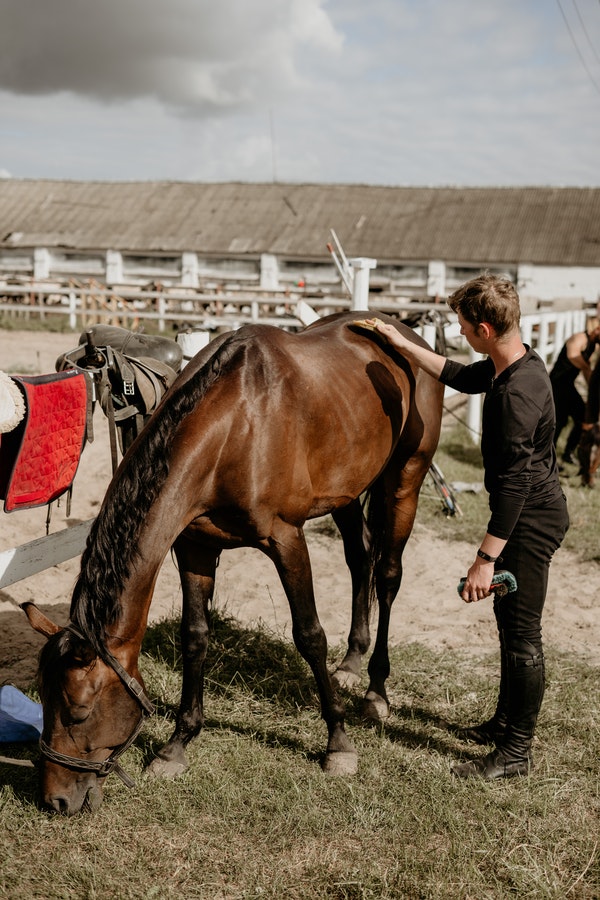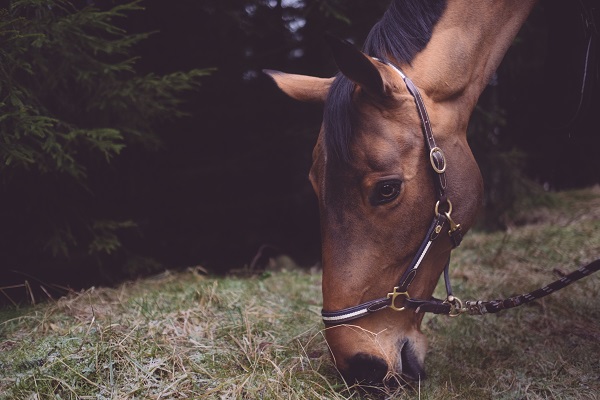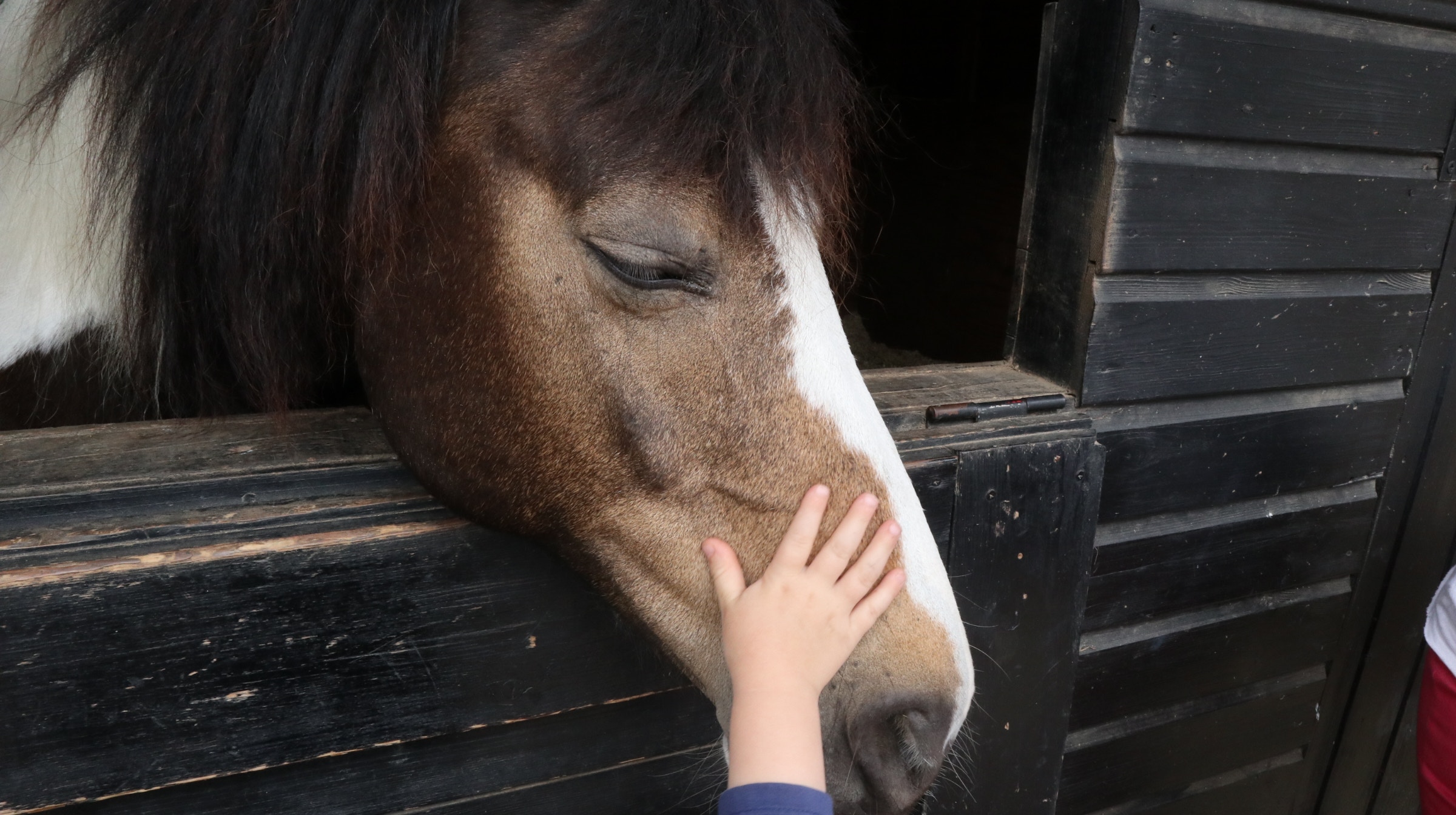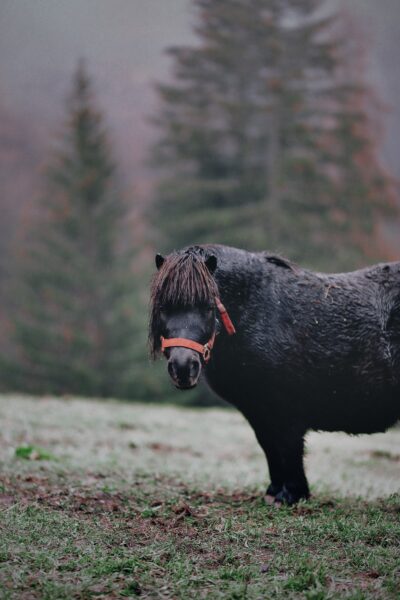How to Create a Customized Horse De-Worming Schedule
One of the most basic equine health practices we think we must do as good horse owners is de-worming.

All horses have some level of worm infestation, but with so many products out there, and conflicting advice online, how do you know where to start?
In this post, we’ll teach you how to develop your own, customized, horse deworming schedule.
To understand how to de-worm, we need to understand the types of worms we’re dealing with.
What Types of Worms Are We Dealing With?
There are four main classes of parasites that we’re concerned with:
- small strongyle
- large strongyle
- ascarids
- tapeworms
In all of these classes, the adult worm lives in the horse.
When they reproduce, their eggs or larvae pass in the horse’s manure and migrate to the surrounding grasses or soil.
Then the horse will eat the grass, ingest the eggs or larvae and the cycle begins again.
Why Do We De-Worm Our Horses?
Why do we de-worm our horses? In the wild, horses will graze a small area at a time, constantly moving to new pastures.
The larvae or eggs from the worms listed above can only survive a few months outside of the horse’s body.
This means that, in the wild, a herd of horses would very rarely graze back over the same spot in less than a few months.
In our backyards, though, they don’t have a choice.
They graze the same paddocks month after month, year after year, increasing and promoting a worm infestation.
Where Do You Start De-Worming Your Horse?
If you’ve bought a new horse, are leasing a new horse, or moving your horse to a new home, how do you know where to start?
As with most things, begin with your vet.
Your vet will be able to do a fecal egg count and tell you exactly what type of infestation you’re dealing with.
All horses have some level of parasitic infestation, but not all infestations are damaging.
To perform this test, you will collect a clean manure sample in a plastic bag for your vet.
Your vet will then take the sample, look at it under a microscsope and count how many and what type of eggs are being shed in your horse’s manure.
For a detailed write-up on how to collect this sample, take a look at this article from Horse Journals.com: How to Collect Manure for a Fecal Egg Count.
NOTE: a fecal egg count is recommended for strongyles and ascarids, not tapeworms.
Other things your vet will take into consideration are the time of year — high heat and freezing temperatures retard or completely stop worms.
In addition to heat, humidity also plays a role in worms.
A hot, dry desert is not as friendly an environment for parasites as a warm, moist area.
Methods of Deworming
Pastes are a convenient, one-time dose that is available in any feedstore and online.
Now they also come in flavors in an attempt to make the application easier.
Unfortunately, some horses get smart to it, will hold it in their mouths and when you’re not looking spit the neon green paste all over your black dog. (Ask how we know…)
TIP: to apply a paste, take an old toothbrush and “brush” your horse’s teeth. This will get their tongue working, and they will spit out any hay or grass that the paste could get wrapped up in and spit out later.
The powder is a daily de-wormer that is spread over feed.
If your horse is violently opposed to paste, this is a perfect compromise, and the idea behind it is that it administers a smaller dose on a daily basis to keep the horse’s stomach happy and keep the level of infestation low.
Injectables should only be administered by a vet or someone very experienced with giving injections.
This is a viable option if your horse would rather kill you than let you shove something in his mouth and will not eat his feed if a powder is added.
Unfortunately, horses are smart, and most won’t let you stick them on a regular basis.
TIP: measure your horse’s body weight accurately. Your de-wormer amount will be based on how much your horse weighs — giving him too little will just create resistant parasites. Giving him too much may cause colic.
Types of Horse Dewormer
Different classes of de-wormer attack different types of parasites.
All of the de-wormers you see in the feed stores all break down into only three classes:
- Benzimidazoles – Fenbendazole (Panacur) and Oxybendazole (Anthelcide)
- Macrocyclic lactones – Ivermectin and Moxidectin (Quest)
- Pyrimidines – Pyrantel (Strongid)
Each of these chemical classes has a different effect on each class of parasite:
- Benzimiazoles is effective against ascarids, but is almost ineffective against small strongyles.
- Macrocyclic lactones is still effective against all classes.
- Pyrimidines is less effective against all worms and does not kill encysted strongyles.
When To Be Concerned
If you notice a horse having trouble putting on weight or is acting depressed or has a dull coat, you may need to reexamine your de-worming schedule. Call your vet.
De-Worming in 2021
The advice given above was what I was taught in 2007 in my Equine Studies degree and is the most prevalent advice you can find on the internet.
However, after nearly 40 years of consistent deworming, veterinarians are seeing more and more resistant worms developing.
One of the studies I read on Deworming Your Horse said that 95% of the small strongyle population they examined was resistant to Panacur, 53% were resistant to Anthelcide, and 40% to Strongid!
Talk to your vet about their recommendations – but more and more vets are recommending de-worming only in cases of severe infestations.
For more information on de-worming, check out this video from Dr. Dan Moore:
What Can You Do Instead of De-Worming Your Horses?
The best alternative to de-worming your horses is to manage their land better.
Using temporary electric fencing, move your horses around their paddocks.
If at all possible, try not to run your horses over the same piece of land for a minimum of 3 months.
If you live in the North, you’ll only have to do this during the warmer months.
If you live in the South, only during the cooler months.
Reduce the number of horses per acre.
This simply reduces the number of worms as well.
Remove manure from the pasture and compost it.
While no one likes picking fields, doing so twice a week will reduce the amount of exposure you horses have to the parasites.
I hope this has cleared up the topic of de-wormers.
Write in and let us know if you have any de-worming stories, a tricky horse, success with one form of de-wormer or another, etc.
We’d love to hear from you!




